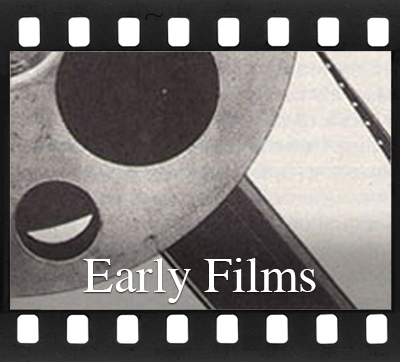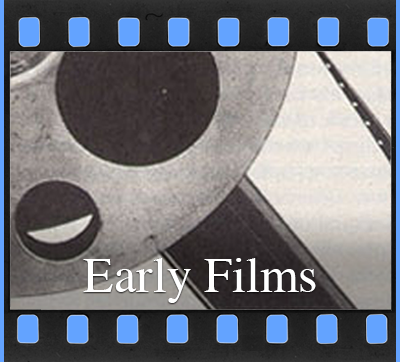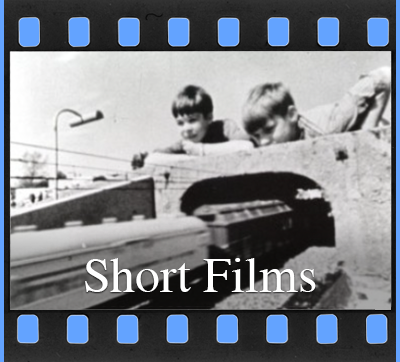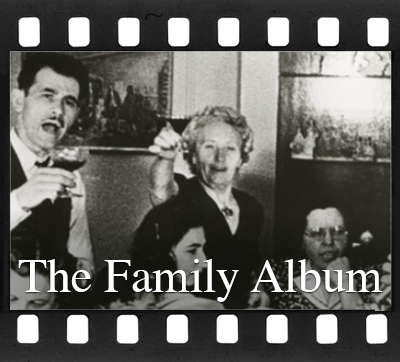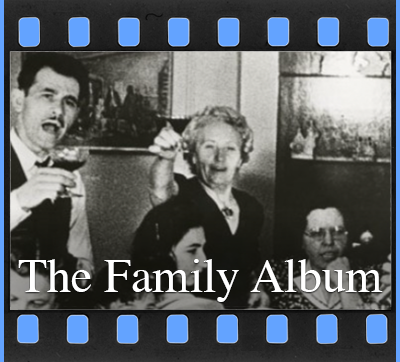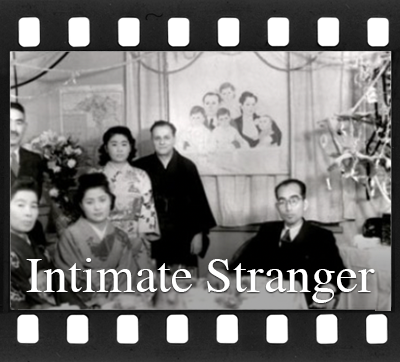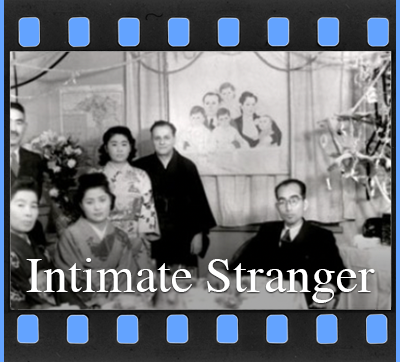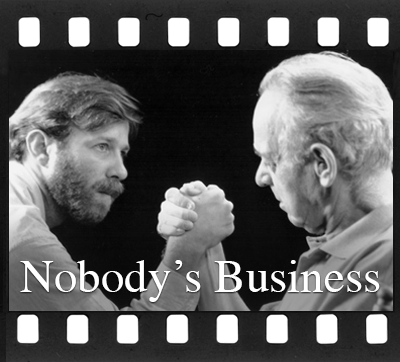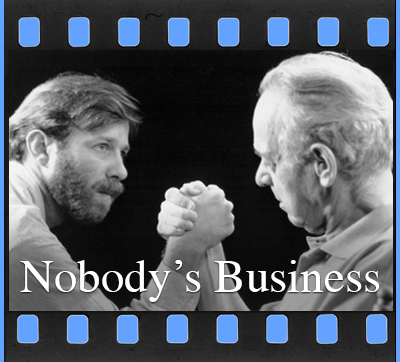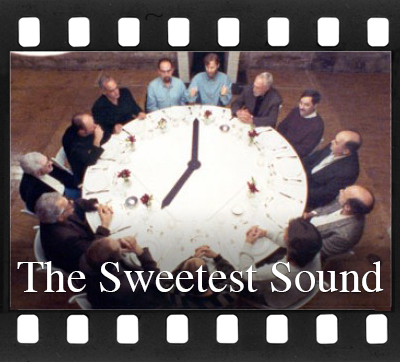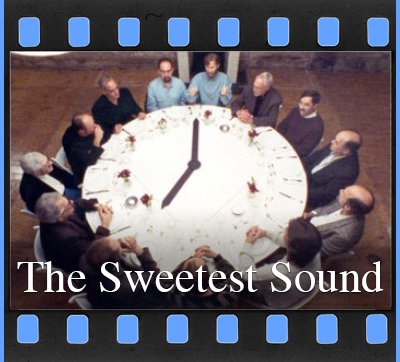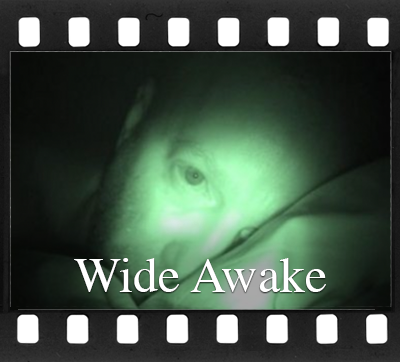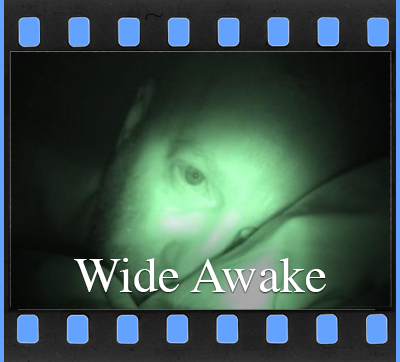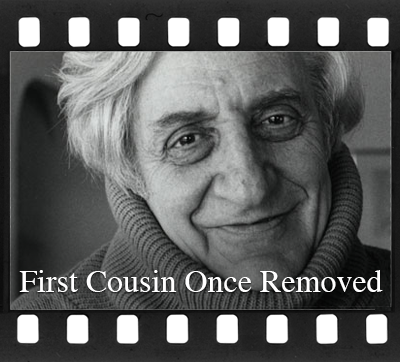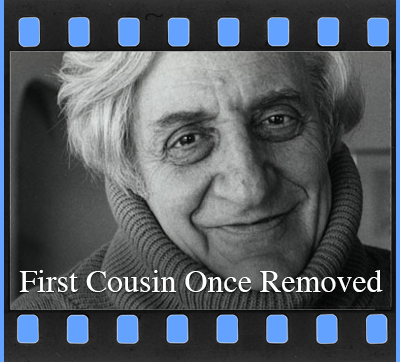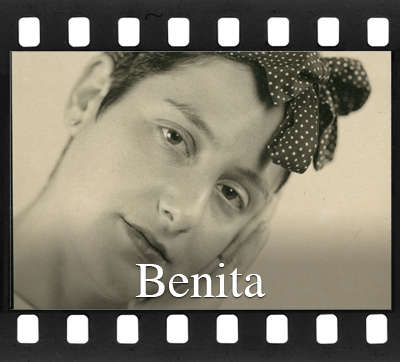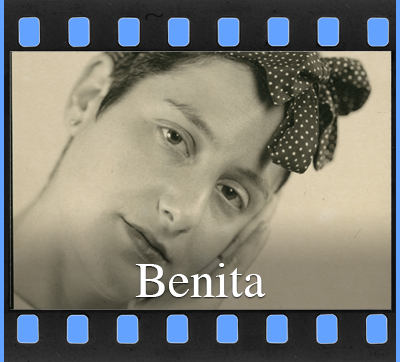56 Ways of Saying I Don't Remember
A Film by Alan Berliner
Synopsis
56 Ways of Saying I Don’t Remember is part one of a suite of six short films collectively titled, Translating Edwin Honig: A Poet’s Alzheimer’s completed in 2010. The film is a portrait of distinguished poet, translator, critic, and teacher, Edwin Honig -- who was my cousin, friend and former mentor – and his journey through the depths of Alzheimer’s disease. It is the chronicle of a man who, though he may have lost his memory, his relationship to the past, and his command of language, still retains his wit, his sense of humor, his scholarly demeanor, and the bearings of a deeply poetic soul.
FILMMAKER STATEMENT
56 Ways of Saying I Don’t Remember is not a film I would have made about anyone else but Edwin Honig. It’s the culmination of decades of deep friendship, mutual trust, family kinship, artistic kinship, countless long walks, talks, and telephone conversations, often centered around Edwin’s insistence that art should always get to the heart of the matter – to the very bottom of things – an approach he valued in his life, applied to his work, and something I kept in mind throughout the making of the film.
As our ongoing conversations recorded the steady decline of his body and his mind, they also document the strength and stamina of his spirit, his innate charm and his ever-playful way with words. While the film approaches Edwin’s condition with compassion and humor, it also portrays Edwin’s life with the same raw honesty that resonates in his poetry, written amidst a lifetime steeped in tragedy, love, loss, irony and literary daring.
I was with Edwin the day he agreed to donate his brain to science, for Alzheimer’s research. I’d like to think that my film preserves Edwin’s amazing mind, and allows us to look at Alzheimer’s disease, remembering, forgetting, and in many ways life itself, in ways we never have before.
– Alan Berliner
For the past four years I have been chronicling the journey of my friend, cousin, and mentor, Edwin Honig – distinguished poet, translator, critic, and teacher – into the depths of Alzheimer's disease. Honig, who is now 91 years old, founded the Creative Writing Program at Brown University, where he taught for 26 years. He’s written dozens of critically acclaimed books and poems that have been published all over the world. His seminal translations of Federico García Lorca, Calderón de la Barca, and Fernando Pessoa awakened English speaking readers to the work of these literary giants, and he’s received honorary "knighthoods” from the King of Spain and the President of Portugal. Unfortunately, he remembers none of it...
Making 56 Ways of Saying I Don’t Remember was a critical part of a process that inspired me to make a much longer feature-length film portrait of my cousin, friend, and mentor, Edwin Honig, called First Cousin Once Removed.
56 WAYS OF SAYING "I DONT REMEMBER"
I don’t remember.
Let me think.
Beats me.
I don’t know.
I’ve forgotten.
I don’t know.
I’ve forgotten.
I don’t remember.
I’m not sure.
Je ne sais pas.
I can’t tell you.
Should I know?
Who knows?
I don’t remember.
I’m afraid I’ve forgotten.
I cannot tell you.
I should know that.
I don’t know what I can’t tell you.
It’s passed by.
Why you ask?
I don’t remember.
I don’t know.
Let me think.
I can’t remember enough to answer that question.
The whole thing seems now to be all bundled up.
It’s hard to explain I guess.
I remember what I’ve forgotten, I forget what I remembered.
Is that clear?
Offhand, right away, I can’t tell you.
I’m not trying to hold anything back.
I don’t know where I am.
Where were we?
Will you repeat the question?
What did you ask me?
What do I remember?
Zero.
If there’s another way to say it, I’d like to hear about it.
That’s too much to tell you.
It’s all a mystery.
Tell me what you mean.
Takes me time to put together what you tell me and the thing itself.
And so… I cannot tell you.
It feels momentarily blah, blah, but then it disappears.
Entirely out of my mind. Entirely.
Sorry to be so stupid.
It’s a hard question.
What is it you’re looking for?
Does that need an answer?
I don’t think I can redo what is felt by putting it in the face of what I hear, or place of being.
I don’t know what the hell you mean.
Sorry.
The mind can be blank, and it still be going. That’s the trouble.
Does that make any sense?
I have no idea.
I’m not sure I’m telling you everything the way it was.
I’ve forgotten all that.
Maybe you caught me on a bad day.
There is not much to say about the whole thing. It happened.
Once upon a time, and so on.
I’ve lost something.
What’s the word…?
Memory.
Wait a second, say that again.
I don’t know what I said.
56 ways PASSING Poem by Edward Honig
When hope dies, the straps that saddle us to time
become undone, and we sit alone in space
as in a place that can no longer hold us:
not wishing yet to stir,
we sit as though still held there,
patiently, by nothing but our weight,
yet with the weight itself no longer there,
until the loss becomes a giddiness
and we imagine movement is a falling,
a lumping pratfall, a spraddling
of diminished form on earth
waiting to be gone.
From this we wake into another form
still wet with shaping, a form
as of another being never yet imagined,
and from this we view
the carcass of our former self:
as in a dream that says goodbye
to everything most intimately known,
briefly, quietly, without a qualm.
And when we rise, the waves of nothingness
beat and pull the topmost shore away.
Clearly gone, without a trace,
we are no longer there.
56 WAYS Navarra Spain newspaper
Alan Berliner retrata el Alzheimer de un poeta en su último trabajo, estrenado ayer en Pamplona
Alan Berliner portraits a poet's Alzheimer's on his most recent work, premiered yesterday in Pamplona.
"Recuerden cómo olvidar"
"Remember how to forget"
EDWIN Honig tiene 56 maneras de decir “no lo recuerdo”. Dentro de la tragedia que supone tener Alzheimer, se da la circunstancia de que un pariente de este poeta, traductor, crítico y profesor estadounidense se dedica al cine, y que se ha convertido en uno de los realizadores independientes más reconocidos de Estados Unidos. Es Alan Berliner, viejo amigo del Festival Punto de Vista, donde ayer estrenó internacionalmente Translating Edwin Honig: A Poet’s Alzheimer (Traduciendo a Edwin Honig: el Alzheimer de un poeta).
Edwin Honig has 56 ways of saying "I don't remember." Within the tragedy of suffering Alzheimer's disease, it happens that a family member of this American poet, translator, critic, and professor is a filmmaker, who has become one of the most recognized independent filmmakers of the U.S.A. He is Alan Berliner, an old friend of Punto de Vista, where yesterday it was the international premiere of "Translating Edwin Honig: A Poet's Alzheimer's."
Berliner ha seguido al primo carnal de su madre durante cuatro años. Toda una legislatura, o un periodo olímpico, para rodar una película de 19 minutos. Translating Edwin Honig: A Poet’s Alzheimer se compone de seis sub-cortos, y en el primero de ellos compila esas 56 maneras de disculparse por no acordarse de algo, una detrás otra.
Berliner has followed the life of his cousin for four years. A whole legislature, or a period between Olimpics, to shoot a 19 minutes film. "Translating Edwin Honig: A Poet´s Alzheimer's" is made with six sub-shorts, and the first of them gathers those 56 ways of apologizing for not remembering something, an apology after another one.
Honig, de 91 años, premiado en su día en España y Portugal por sus traducciones de Lorca, Calderón y Pessoa, sorprende al espectador al acordarse de un trágico suceso ocurrido a su hermano Stanley cuando éste tenía 3 años y él 5. La longitud de su cabello indica los saltos en el tiempo a lo largo de esta cinta en la que, una vez superada la fase de sobrecogimiento por lo terrible de la enfermedad, aflora también el sentido del humor, como cuando le preguntan por alguien y dice que “creció y se convirtió en una lata”, o en el ritmo que tararea y la musicalidad de las palabras con las que juega. Al final, Berliner le pide unas palabras para los espectadores. Honig, mira a la cámara y dispara: "Recuerden cómo olvidar".
Honig, 91 years old, awarded time ago in Spain and Portugal because of his translations of Lorca, Calderón, and Pessoa, surprises the audience when he remembers a tragic moment that happened to his brother Stanley when he was 3 and Edwin 5. The length of his hair indicates the jump cuts in time throughout this tape in which, once accepted the overwhelming suffering of the disease, allows also a sense of humor, like when Edwin is asked about someone else and he says that "he grew up and became a pain," or the rhythm that hums, and the musicality of the words with which he plays. At the end, Berliner asks him for some words for the spectators. Honig looks at the camera and shoots, "Remember how to forget."
Alan Berliner no estaba ayer en Pamplona pero síque hubo invitados presentado sus trabajos. Fathima Nizaruddin lo hizo con su hijab puesto. Nacida en Kerala (India) y formada en Londres y Nueva Deli, la propia cineasta aparece en su cortometraje, Talking Heads (Muslim Women) [Cabezas parlantes (mujeres musulmanas)], una respuesta satírica a la manera en que los medios homogeneizan a las mujeres de su religión. “Quería tratar lo que veía a diario con las mujeres musulmanas, quelas veía sin ningún tipo de represión”, explicó ayer.
Alan Berliner wasn't yesterday in Pamplona, but there were other guests presenting their works. Fathima Nizaruddin did so wearing her hijab. Worn in Kerala (India) and educated in London and New Delhi, she even appears in her own short film, "Talkin Heads (Muslim Women)," a satirical answer to how mass media show women with her same religion.
- ◻ SHORT FILMS
- ✓ 56 WAYS OF SAYING I DON’T REMEMBER
- ◻ VIEW "EVERYWHERE AT ONCE" CLIPS
- ◻ VIEW "CITY EDITION" CLIPS
- ◻ NATURAL HISTORY NOTES
- ◻ MILLENNIUM PROGRAM NOTES (1985)
- ◻ ALAN BERLINER COMPOSER OF SOUND IMAGES
- ◻ POST FUTURE PAST PERFECT
- ◻ PHOTOS

